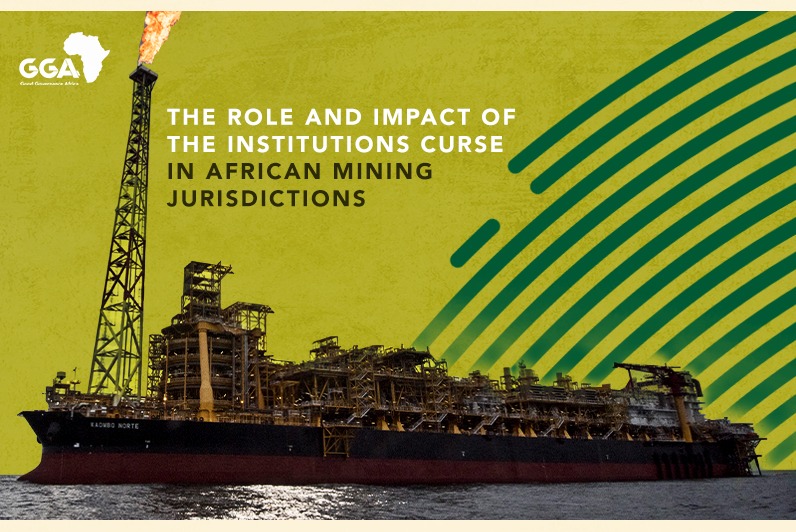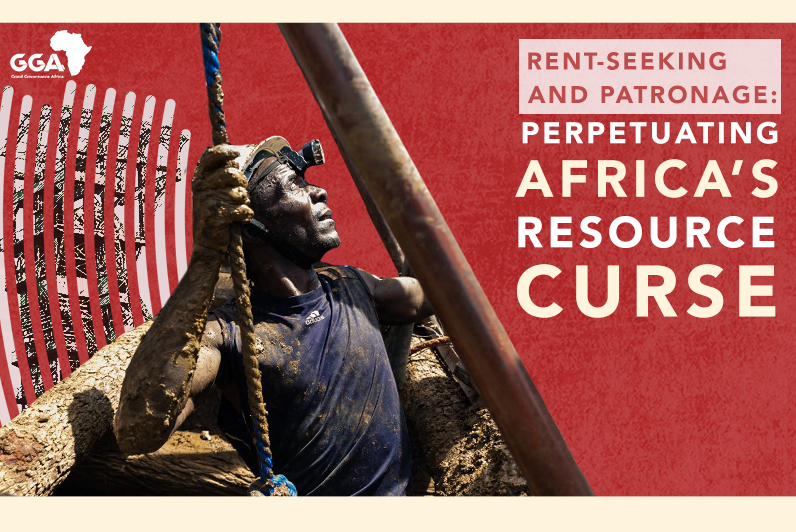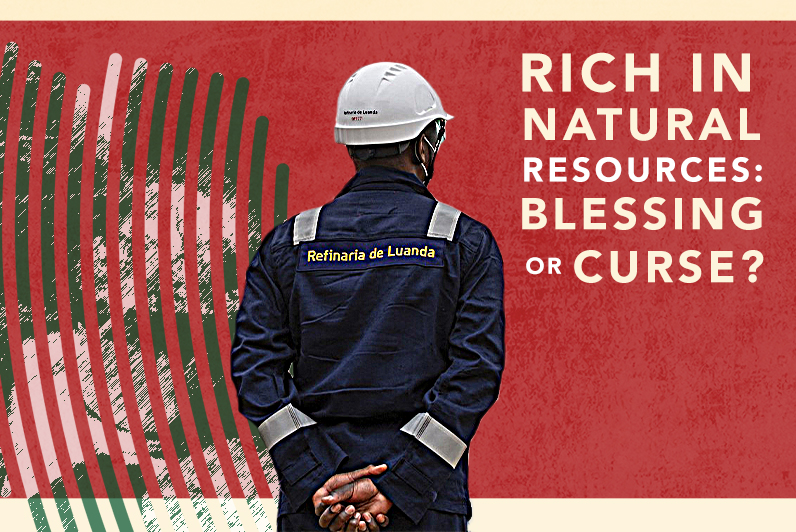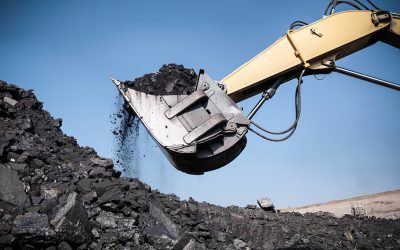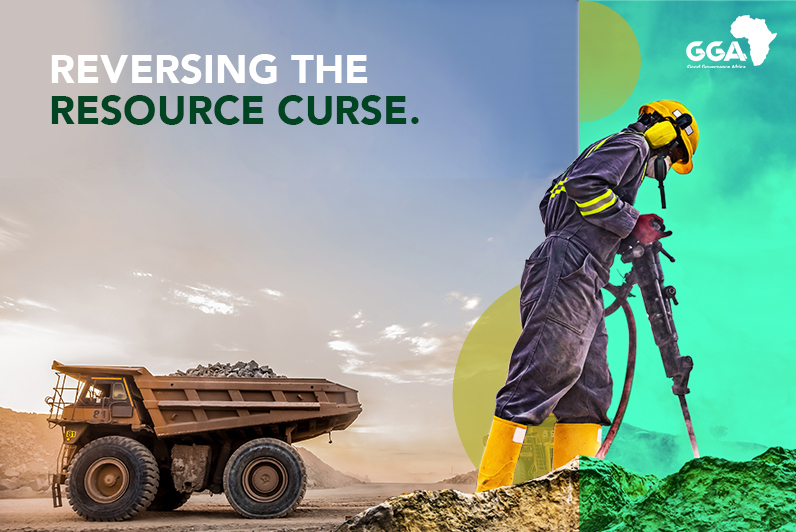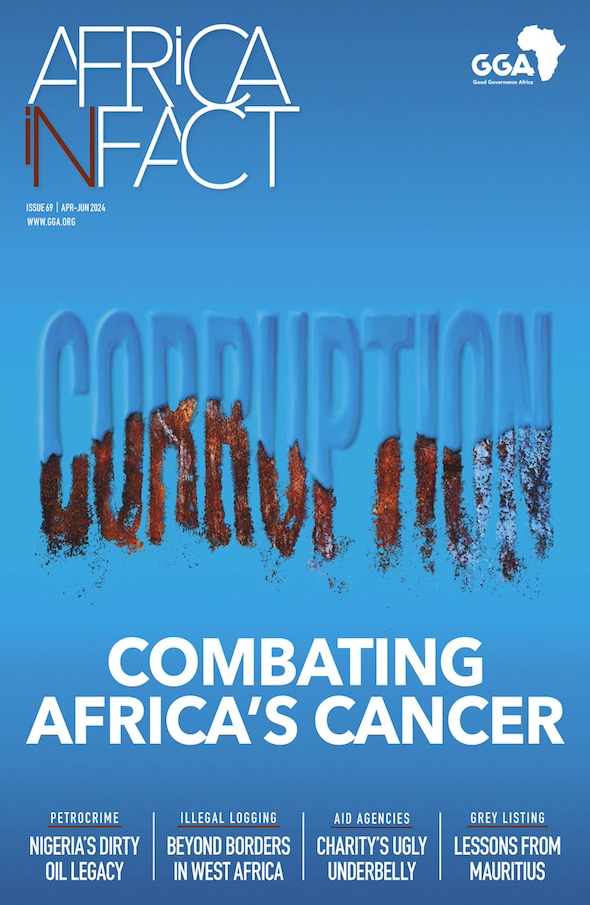What is the focus of this GGA Programme?
Articles from this programme
The role and impact of the Institutions Curse in perpetuating the Resource Curse
When oil, natural gas, or similar natural resources are discovered the expectation is that their exploitation will dramatically and materially benefit the population of the host country.
Reversing the Resource Curse – Mining Vodcast
Tune in to our first vodcast of the campaign above, in which GGA SADC Executive Director, Chris Maroleng, hosts colleagues, Busisipho Siyobi (Lead Researcher, Natural Resource Governance Programme), and Dr Ross Harvey (Director of Research & Programmes).
The impact of rent-seeking and patronage in perpetuating the Resource Curse
As we gain better understanding of how the Resource Curse manifests in developing countries, we now pay close attention to the key mechanisms that drive the Resource Curse even deeper. Rent-seeking and patronage are among the key contributing factors to this wicked problem.
How the Resource Curse has played out in Nigeria and Angola
In weakly institutionalised contexts, natural resource wealth tends to be a curse instead of a blessing. Where citizens are relatively powerless to hold ruling elites to account, resource wealth undermines development prospects.
An assessment of the Extractive Industries Transparency Initiative
By Busisipho Siyobi
The Extractives Industries Transparency Initiative (EITI), founded in 2003, was formed as a tool to improve and promote transparency in the oil and gas, and mining sectors, respectively.
How do we reverse the Resource Curse?
Scholar Richard Auty first coined the phrase ‘resource curse’ in 1993 to illustrate the confounding nature of the relationship between natural resource abundance and under-development. Intuitively we expect that natural resources would provide the bedrock for development. To the contrary, empirical evidence suggests a strong correlation between natural resource wealth and poor development outcomes, at least since the early 1970s.
READ BETWEEN THE LINES
Sign-up to our newsletter to get the inside track on Africa
Natural Resource Governance
Our Natural Resource Governance team is committed to reversing the ‘resource curse’ – the paradoxical relationship between natural resource wealth (minerals and hydrocarbons especially) and underdevelopment. It turns out that institutional quality is the key determining factor for resource wealth to translate into broad-based development. We therefore aim to build institutions underpinned by transparency and accountability in the extractives industry. To these ends, we advocate for the implementation of the Africa Mining Vision in each mining jurisdiction across the continent.
The programme ensures that the various disparate attempts at improving extractive industry governance on the continent are better coordinated to gain maximum traction. Our NRG team works closely with the GIA team to produce our monthly Intelligence Reports, as the mining industry is a key element of our target audience.
We specialise in enhancing Environmental, Social and Governance (ESG) performance for mining industry and related firms doing business in Africa. We differentiate ourselves by not only providing ESG improvement insights but also by being an independent broker between the private sector and African governments.
Our NRG programme provides politically workable, regional solutions that connect mining with green industrialisation. The continent, on average, is facing ‘premature deindustrialisation’ and associated extreme youth unemployment. As new technologies associated with the fourth industrial revolution advance, mining will no longer be a large employer, and this poses significant governance challenges that we specialise in helping governments and firms to navigate.
New technologies allow for mining to be both safer and less environmentally invasive. This allows for higher margins, creating wealth that should serve as a catalyst for connecting mining to other sectors of the economy. These connected sectors can feasibly be developed to tap into global value chains, especially those that feed the fourth industrial revolution, and specifically the energy and transport revolutions within that domain.

